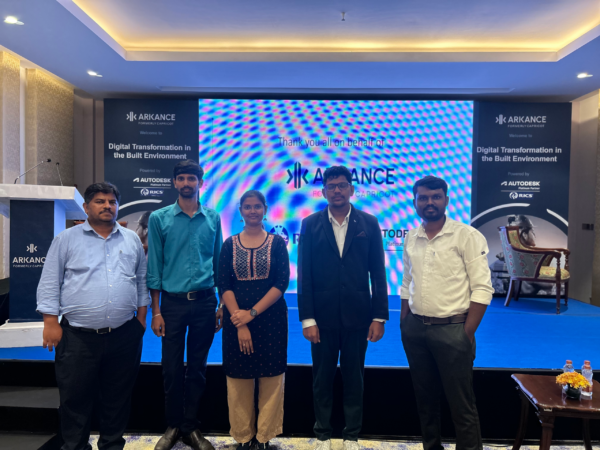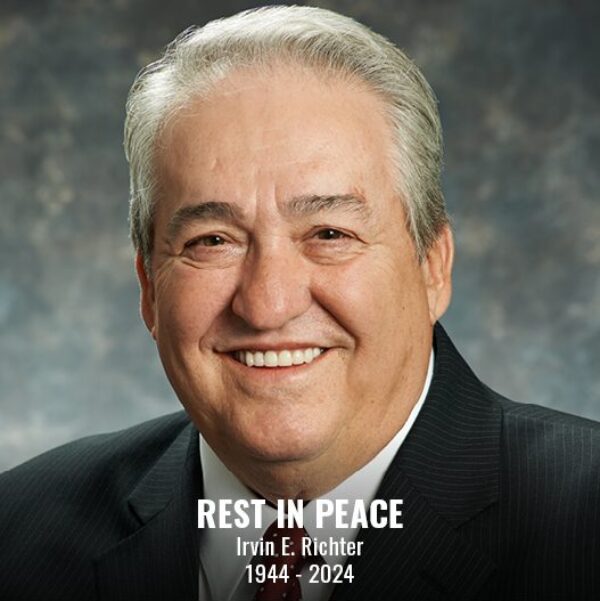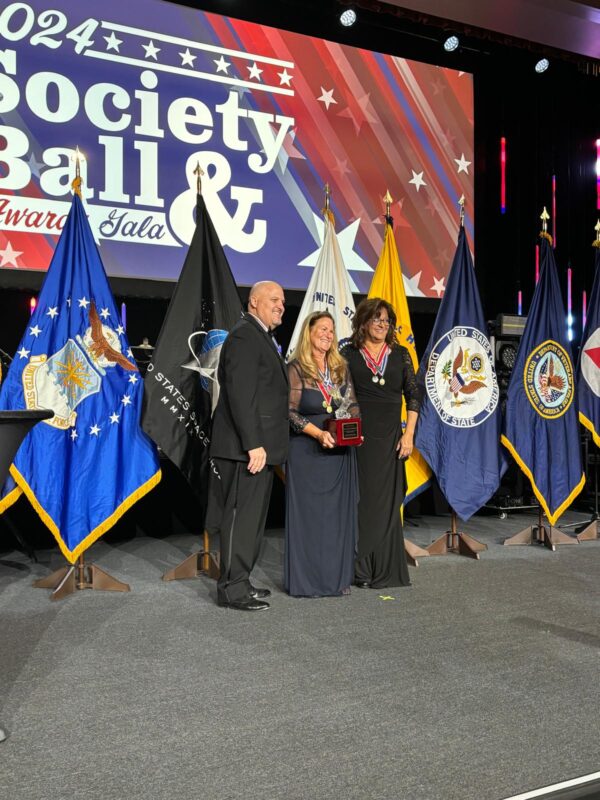
July 15, 2024 | Articles
Construction’s Digital Transformation & The Tools of Modern Project Management

“At the end of the day, our client training programs enable our clients to manage their own projects and programs, without needing to call on Hill,” says Hill International Vice President Catherine Spillars. “Our training programs are based on the partnerships we’ve formed with clients delivering their most high-profile and complex assignments. They come to us to train their own PM personnel because they’ve seen how our professionals have helped them succeed and want to implement those same tools and techniques for their own personnel.”
PM Training: Selecting a Proven Provider
The courses Hill develops leverage the company’s own library of training programs, highlighting Project Management Institute (PMI) principles and best practices, among others.
Traditionally, Hill’s instructional programs cover project management, project controls, document controls, estimating, and scheduling. Underlying these topics is an emphasis on stakeholder management and integrating with client personnel at all levels of their organization. These training programs are available both informally on an ad-hoc, project-specific basis, as well as in more formal and established settings where our instructors provide an in-depth curriculum tailored to the client’s specific requirements. In both instances, our training programs feature personal instruction, student evaluations, and teaching methods and mediums (presentations, demonstrations, lectures, hands-on sessions, webinars) for a variety of learning styles.
“The goal of any of our training programs is to equip the client’s personnel with the skills, knowledge, and, when possible, direct experience to lead their projects successfully,” Spillars emphasizes. She notes that for such topics as project controls, estimating and scheduling, and document controls, Hill training materials address basic application principles and real-world examples, and are structured to encourage discussion and participation. For example, scheduling courses address fundamentals such as project setup, schedule configuration details, Work Breakdown Structure (WBS), resources, and cost accounts. Advanced training may include the decomposition of scope and activity development incorporating calendars and coding.
Custom Approaches Built on Best Practices
Spillars personally leads Hill’s program and project management training programs, creating and deploying customized programs for organizations ranging from training for an integrated Capital Program Controls System for the San Francisco Municipal Transportation Agency’s core controls team to hands-on project management training for chiefs, managers, and supervisors from the Navajo Housing Authority. Although Hill’s training solutions for these and other clients are always customized to meet the specific needs of each organization and their trainees, Spillars explains each program follows a basic, four-step approach:
“These steps all require a true partnership with the client,” says Spillars. “If we don’t understand what the client wants to achieve through their training, we can’t drive their program goals. And if the organization doesn’t buy into the program, then we need to sort that out before training begins.
“It is important for us to understand what the client wants to achieve with their training program so that we can drive their program goals. This allows us to address any challenges and confirm buy-in with our client well before the training begins. Once we have that buy-in, I’ve found that the programs themselves work exceptionally well.”
Training the Trainer: Choose a Trainer that Will Put Themselves Out of Business
“One of the areas I’m personally proud of is our ‘Train the Trainer’ services,” says Spillars. “During our programs, we identify client personnel with the drive and talent to become the client’s own, internal PM experts. We’ll offer these potential trainers targeted sessions to give them the knowledge, practice, and materials to continue training their colleagues long after Hill has finished our training work.”
Spillars, with more than 15 years of A/E/C industry experience, says there is one metric that clients should always consider when selecting a training consultant. “Is your PM training program going to come in for a set amount of months, give a specific number of lectures and materials, and then leave with a handshake, or are they going to leave your organization with the structure in place to build your talent pool on your own, with your own PM trainers and coursework?”
As one example, Spillars cites Hill’s work for the Los Angeles County Metropolitan Transportation Authority (LA Metro). “LA Metro brought us in for a series of two-day sessions, delivered quarterly over a year. We developed a Metro-specific Project Management Academy that highlighted Metro PM policies, procedures, and best practices, and then trained 100 LA Metro project managers working on Capital Projects in the Engineering and Construction, PMO, Operations and Planning Departments.” When the assignment concluded, Spillars notes, the training tools and techniques carried on and continued helping to guide LA Metro’s program and project management for their 30-year capital improvement program.
Expecting and Overcoming Challenges
Spillars notes that every training program Hill executes faces challenges, however her experience has prepared her to address these challenges before they impact results. “Sometimes we have a Subject Matter Expert who is an industry leader in their field, yet lacks strong presentation skills,” she explains. “In that case, we can team them with a more seasoned presenter to convey their expertise, or work with them directly to improve their presentation and training skills, especially when it’s a client’s own SME.”
Spillars notes the structure of her training program management plans helps maintain flexibility so that training teams can swiftly adapt to challenges or conflicts. Recently, for example, Hill’s training team for San Francisco International Airport’s (SFO) Capital Program Support Services (CPSS) engagement team adapted training sessions and workshops for Skype and Teams delivery to abide by SFO’s mandate for remote work during COVID-19. The CPSS training team’s seamless transition is a result of their commitment to do whatever is necessary to continue supporting SFO, as well as the flexibility built into their training program management plans to adapt to changing priorities.
To date, Hill’s training program has accommodated more than 1,300 SFO attendees. These attendees include SFO airport staff, construction/project management consultants, and project teams working on SFO’s Capital Program.
Trust the Process, Believe in the Results
At the conclusion of each training program that Hill delivers, the company issues Training Summary Reports that reflect client input and feedback. Based on these reports, more than 90% of program attendees have rated Hill’s training programs as Excellent/Good.
“I feel fortunate to have worked with so many qualified teams who, in addition to having great presentation skills, have had the experience and knowledge necessary to develop, lead and guide our sessions,” Spillars concludes. “However, the real measure of success is in our clients’ projects after the personnel we trained use their new skills in the field and the office. Were the projects delivered safely, on budget, and on time? When we see the CIPs where our trainees are working being cited for their success and achievements, that’s what I’m most proud of: the track record of success we leave behind.”
Share

July 15, 2024 | Articles
Construction’s Digital Transformation & The Tools of Modern Project Management

July 10, 2024 | Articles
GC/CM at Post Falls: Managing Avista’s North Channel Dam Rehabilitation Project

June 23, 2024 | Articles
Irv Richter – An Innovator, A Pioneer, A Leader (1944 – 2024)

June 14, 2024 | Articles
Environment of Care Standards – Meeting the Challenge (Part Two)

June 13, 2024 | Articles
PMO for Public Transit Project Success: The Reopening of Philadelphia’s Franklin Square Station

June 7, 2024 | Articles

May 17, 2024 | Articles
Hill Interim Federal Market Sector Leader Jane Penny Receives Golden Eagle Award

April 11, 2024 | Articles
A Model Move: Managing Move-In at the Sylvia H. Rambo U.S. Courthouse